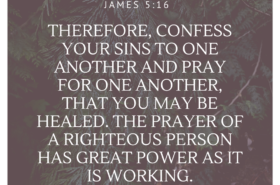
There is hardship in everything except eating pancakes.
Charles Spurgeon
I’d had a particularly stressful couple of weeks. I called my pastor and his wife, whom I also consider friends, and shared my state of mind with them. I wasn’t asking to come over, but after a pause and quiet consulting in the background, he invited me over there to enjoy pancakes and good coffee and decorating their home for Christmas. I found myself feeling much lighter in the presence of company away from home, enjoying good food and beverage, and I realized my plan to stay in would have proven to exacerbate the burden rather than relieve it.
On another day, very similar in stress levels, I took off for a little town not too far away but just far enough to feel removed from the familiar life I knew. I enjoyed some quaint scenes, delicious food, and hot mulled wine. I went to a cozy coffee shop, ordered a ginger-spiced latte, and wrote that week’s blog post. When I returned home, I felt refreshed with the memories of a pleasant experience.
But sometimes the relief was found in a much simpler way. There have been countless nights where I lay down my head wondering how on earth the day’s problems and my mental burdens would resolve, only to awake the next day realizing they were hardly problems at all.
It Was Very Good
When God made the world, He saw all that He had made, and, by His own perfect and holy judgment, it was very good. This world, where He placed sunrises and sunsets, smells, textures, tastes. A world with honey and salt and sweet potatoes and berries.
Centuries later, God came in the flesh. Jesus, upon seeing a wedding’s festivities begin to come to a premature close, performed His first miracle – the turning of water into vats of wine. Not a miracle of healing or restoration, but a miracle bringing to life the experience of a world restored – a world of endless celebration and rest. He ushered in a present permission to simply enjoy.
God the Father created and God the Son affirmed that His creation is to be enjoyed and celebrated. And when we turn toward the middle of scripture in Ecclesiastes, we see that the enjoyment of the world’s provisions even aids in having a fulfilled life.
There is a vanity that takes place on earth, that there are righteous people to whom it happens according to the deeds of the wicked, and there are wicked people to whom it happens according to the deeds of the righteous. I said that this also is vanity. And I commend joy, for man has nothing better under the sun but to eat and drink and be joyful, for this will go with him in his toil through the days of his life that God has given him under the sun.
Ecclesiastes 8:14-15
In a world where chaos and injustice often seem to reign, when you find yourself failing to see what good is left, don’t underestimate the simple pleasures. A call to a friend. A breath of fresh air. A session of writing or creating. A cold beer.
Fasting Is Not the Default Response
I often find myself running to deprivation to seek mercy. Am I stressed? I need to remove all pleasures to heighten my focus on the Lord. Am I depressed? I ought to don myself in sackcloth and ashes – or, the modern equivalent, anyway – so that I can see clearly that Christ is all-sufficient and, through my work, uncover that joy again.
My actions state, “Lord, have mercy on me; see the extent to which I display my dependency.”
Fasting is a holy act, but not one to be taken lightly, and not the only solution to difficulties. While fasting ought to be a regular practice in the believer’s life and is an appropriate response to calamity, there are other gifts God grants to His creation as answers to those prayers for mercy. Fasting, ultimately, is less about seeking an answer from God and more about seeking God Himself. So we do a disservice to God and ourselves when we fast as an act of religiosity to perhaps bargain with God to deliver according to our will.
Rather than run from all pleasantries in hopes for deliverance from pains as the Buddhist does, perhaps consider the whole of your person, as God made you.
Mind, Soul, Heart, and Strength
“Behold, I have given you every plant yielding seed that is on the face of all the earth, and every tree with seed in its fruit. You shall have them for food,” God said to Adam and Eve in Genesis 1. The provision of food naturally tells us that man was created with a need for food. However, before the fall, the fallen experience of starvation or scarcity was not an issue. Food was not a solution to a problem, but an experience to enjoy and a sustaining resource that was abundant.
Now, we are all-too-familiar with the presence of hunger. And, we are also familiar with the term “hangry” – that irritability that, for most of us, inevitably comes when we have been hungry for just a little too long.
Similarly, we find that the need of rest produces all sorts of symptoms, mental and physical. In extreme cases, a lack of sleep can produce hallucinations. In normal cases, it strains the mind and the body. The heart can begin to race, thoughts are driven by fear, despair becomes ever-present.
Yet another experience like this is the lack of community. When observing the results of solitary confinement on a human being, researchers found that their subjects were unable to think clearly, displaying confusion, hallucinating, even becoming suicidal. (Source: https://www.pbs.org/wgbh/frontline/article/what-does-solitary-confinement-do-to-your-mind/) Although most of us have never experienced solitary confinement, we can probably recall a time when we were in a period of isolation – perhaps our schedules clashed with those we loved, perhaps we moved to a new location and had no roots to fall back on, perhaps we lost friends that were dear to us. The loneliness of a lack of community produces smaller manifestations of the things these subjects experienced: unshakeable melancholy, introspection that makes us question our very understanding of ourselves, obsessions over things we’d otherwise dismiss.
Consider other basic needs we have: water, daylight, enough of particular nutrients – even seemingly small things like fresh air or physical touch – and the minor to extreme suffering produced when those needs are not met.
We were not wired this way by accident. Contrary to Buddha’s philosophy, the elimination of need is not the solution; even more importantly, the existence of need is not the problem. Humans are inextricably mind, soul, heart, and strength. They affect and enrich each other. The needs of each did not just appear after the fall, they were simply subjected to a fallen world where needs became unmet.
In my line of work, I have seen how these things that we often dismiss as worldly are deeply spiritual. I operate a ministry of gospel-centered restoration through hospitality. A young woman who lived with me was experiencing deep anxiety after a PTSD episode. Attempting to pray sent her into spiraling introspection and flashbacks; reading required focus she did not have. I was instructing her to nap, drink water, eat food, and listen to music daily. I prescribed a midday walk on a day when the weather was good.
More than once, I saw immediate results from these basic needs. From being unable to process a basic thought before a nap to being productive after, and from being consumed with fearful thoughts to laughing freely after a walk, it became crystal clear to me that these gifts of sleep and breath were answers to prayers for mercy in and of themselves. Although not solving the sources of her fears and not to be confused with the healing hand of God, these gifts aided in strengthening her to deal with them more effectively.
God made us as multifaceted-yet-singular beings, intentionally. We must stop separating realms of us that He wove together. There’s a purpose for these inherent needs, and it’s not to create dependency on the objects or people that fulfill those needs. It’s to create means by which we experience joy and glorify the Lord.
You Prepare A Table Before Me
“I’ve had enough!” said the prophet. “Take my life. After all, I’m no better than my ancestors.” Then he laid down, exhausted after a day of running from danger and facing discouragement, and fell asleep.
Not too long into his slumber, a divine visitor woke him. He opened his eyes to find a satisfying cake and water, and fell back asleep.
Again, the angel returned and woke him, telling him to eat again so he would have strength for the next difficult chapter of his journey.
This prophet named Elijah, with this story found in 1 Kings 19, didn’t fast. He didn’t push himself to pour over scriptures – he didn’t have the presence of mind to do so, he was at his wit’s end. He didn’t sit and try to sort through all the possibilities that could solve his dilemma, analyzing and over-analyzing his woes.
He collapsed into sleep, and God provided to him some basic things. Rest. Food. Water. The companionship of an angel. Elijah was restored from hopeless exhaustion to a refocused presence of mind and strength.
“That meal gave him the strength to travel forty days and forty nights until he reached Horeb, the mountain of God.” (1 Kings 19:8) And at Horeb, Elijah met with God and received His word.
If you still think basic needs and simple pleasures are not spiritually beneficial, let’s not forget that Jesus napped in the middle of a storm.
It’s no coincidence that the Psalmist recognizes a beautiful day outside, a table full of food, and an overflowing cup as an experience reminiscent of something greater.
The Lord is my shepherd; I shall not want.
Psalm 23:1, 5
He makes me lie down in green pastures.
He leads me beside still waters.
He restores my soul…
You prepare a table before me
in the presence of my enemies;
you anoint my head with oil;
my cup overflows.
To the Glory of the Lord
And whatever you do, in word or deed, do everything in the name of the Lord Jesus, giving thanks to God the Father through him.
Colossians 3:17
So, whether you eat or drink, or whatever you do, do all to the glory of God.
I Corinthians 10:31
Anything we do – be it fasting or consuming – can be done to the glory of the Lord. Whatever you do, Paul repeats – do it freely and in gratitude.
We often see misuse of gifts as manifesting in overuse – in idolatry and over-indulgence. But the opposite – no use at all – is equally a misuse of the gift. Imagine receiving a gift from a friend you are meant to use, a gift they delighted to give you – perhaps a pair of headphones, or maybe boots for hiking. Perhaps you spend so much time using the gift that you forget to thank your friend and enjoy their presence. That is certainly misuse. But imagine instead, you let them gather dust, tell your friend you don’t want the gift because you just need the friendship, and that although you did need those headphones and boots, they are worthless compared to simply the relationship of this friend. That would be a shame to your friend’s generosity.
Imagine now, you receive the gift, use it as needed, and thank your friend whenever the gift is put to use. When others see you using the gift and enjoying it, you tell them how kind your friend was to give it to you. Enjoying these gifts on earth that God has given (with moderation so as not to love the gift over the Giver) glorifies Him.
In a world where there are sunrises and mountains and vibrant leaves to take your breath away, where berries ripen and pair well with chocolate, where a hot bath relaxes muscles and fresh coffee energizes your mind, take delight in these things God has provided. Before you despair, pray. Go to God and openly lament and plead. Reach out to the body of Christ. And when you have done those things, with wisdom, approach the earthly provisions God has given – don’t underestimate the simple pleasures.
We seem to have developed this mindset where turning to basic needs for relief from spiritual suffering is inherently sinful. It’s not.
Perhaps, when we are begging God for a solution to our pain, He has already given us the answer at our dining room table, and we simply need to stop and delight in it. Perhaps, our prayers for mercy in suffering are answered in a plate of pancakes.


